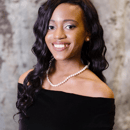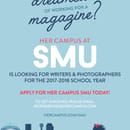As a heterosexual woman, I have no clue what being asexual in college feels like. Looking across campus and attending events off campus, I see plenty of heterosexual and homosexual couples that make their intimate life very known and I have often wondered about asexuality. Asexuality is when you “do not experience sexual feelings or associations.”
I decided to explore the topic by interviewing people who identify as asexual. The individuals gave themselves nicknames for the sake of anonymity.
Mod-Dem
Question: What are your pronouns?
Answer: They/Them/Their
Q: When did you realize that you were asexual?
A: I realized I was asexual sophomore year of high school. I always felt a little different from my peers and it wasn’t until I discovered the term “asexuality” that I came to terms with that.
Q: Is it hard being a college student while being asexual?
A: Sometimes it is hard to be in college and be asexual. A big point of the college experience is the expectation of participating in the hookup culture at least once. There’s a lot of social pressure to “try it out” and it can definitely wear you down.
Q: How difficult is it to live in hookup culture while being in college?
A: It definitely varies from being easy to deal with to being very difficult. I think it’s difficult because the hookup culture has almost become a rite of passage in college especially. When society tells you in order to be ‘grown’ is to have had these sexual experiences, it’s definitely difficult. It can make you feel immature and underdeveloped in certain aspects. At least compared to your peers.
Q: Southern Methodist University has an aggressive hookup culture, how do you manage to stay true to yourself?
A: I manage to stay true to myself by surrounding myself with people who understand that I experience the world a little different and don’t push me to do things I’d rather not.
I asked this person why they chose their unique code name and they responded with, “Modem is an electric device and dem comes from demiromantic, my romantic orientation.”
The second interviewee has only been in college for a month now, so some questions did not apply, but he gave me great insight on the topic.
Interviewee: Puffball
Q: When did you realize that you were asexual?
A: I figured it out at some point in high school. When I hit starting puberty, my mom really liked that I wasn’t “boy-crazy like [my] sister was” and I was happy to be “not like other girls” (jokes on me, I’m not even a girl). I can’t really remember too well how I found the word or when I figured it applied to me, but what I do remember was probably around sophomore year. Comorbidities (the simultaneous presence of two or more chronic diseases or conditions in a patient) also complicated things (is it a societal thing I don’t get? Is it that my body and mind aren’t matching up?). At some point I realized that “oh, most people can see a person and want to do them.”
Q: Southern Methodist University has an aggressive hookup culture, how do you manage to stay true to yourself?
A: I’ve only been here [at college] for about a month, so I haven’t really run into anything of the sort yet. My parents still think it’s a phase (so what if it is?) or “an autism thing” (I mean, maybe, but so what if it is?) or a fear or something. I once tried to explain it to my dad and he said I could “call [myself] ‘pre-sexual’. You’re not there yet.” I’m sorry, what? That makes me sound like a pedophile. I keep having to assure them that no, I’m not putting myself in a box, that labels can change but I like having a word for my experiences like you’ve always had and if my experiences change, the label will too, which is fine and all but can you just let me exist without having to constantly defend myself? …it gets exhausting sometimes.
He also mentioned pushback from groups of people saying, “There’s a lot of pushback not only from the general population, but also from parts of the LGBT+ community who call us attention seekers or snowflake-type.”
After speaking to both people, I feel like I have more of an understanding of asexuality and how difficult it can be. These two individuals were ‘myth-busters’ for me and I appreciate their comfort and openness. Overall, I understand that being asexual, after the individual accepts it and understands it, is less difficult than I assumed. Yes, there are hardships, but both of these people showed me that they were able to push through and still have a full college experience.



